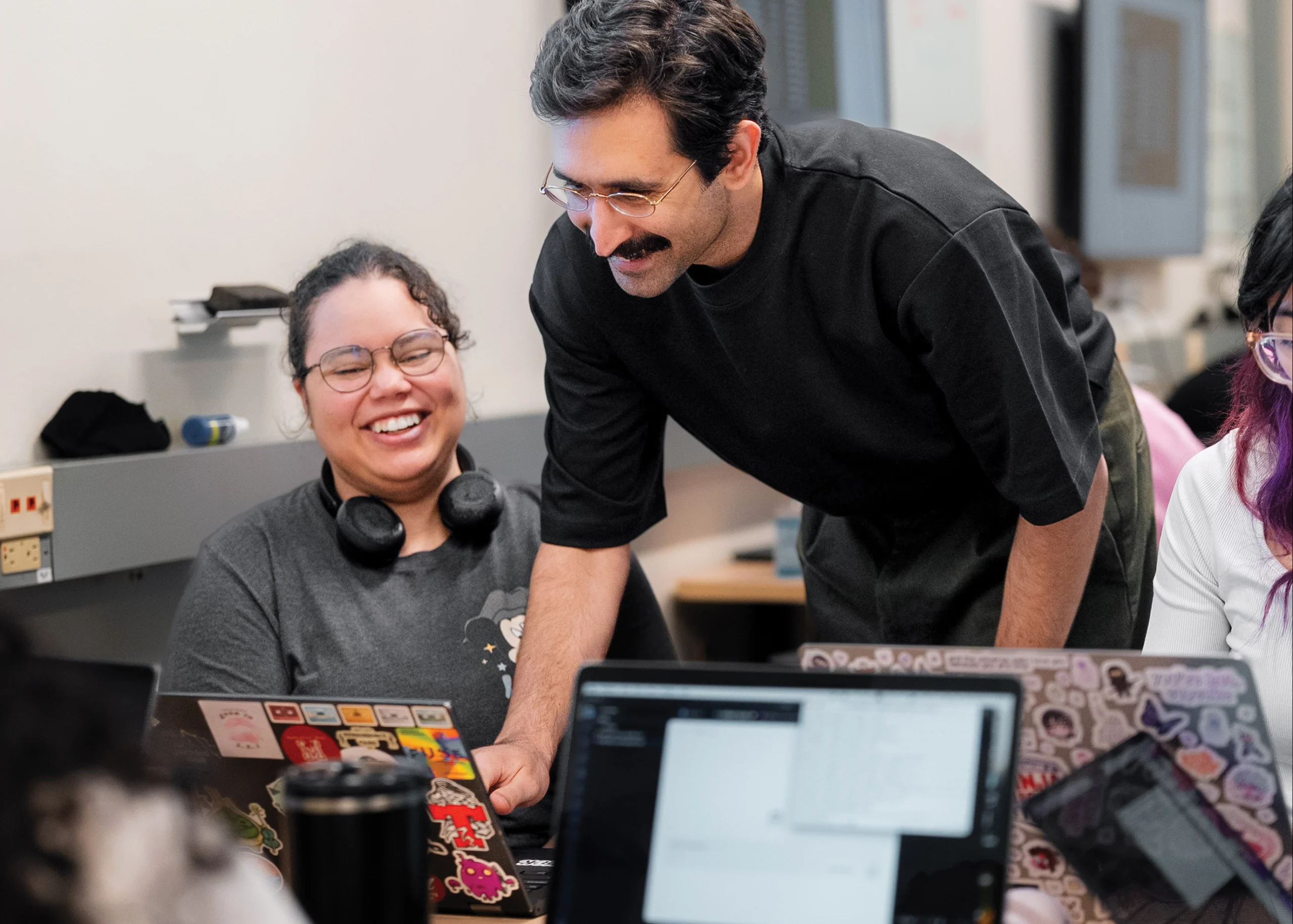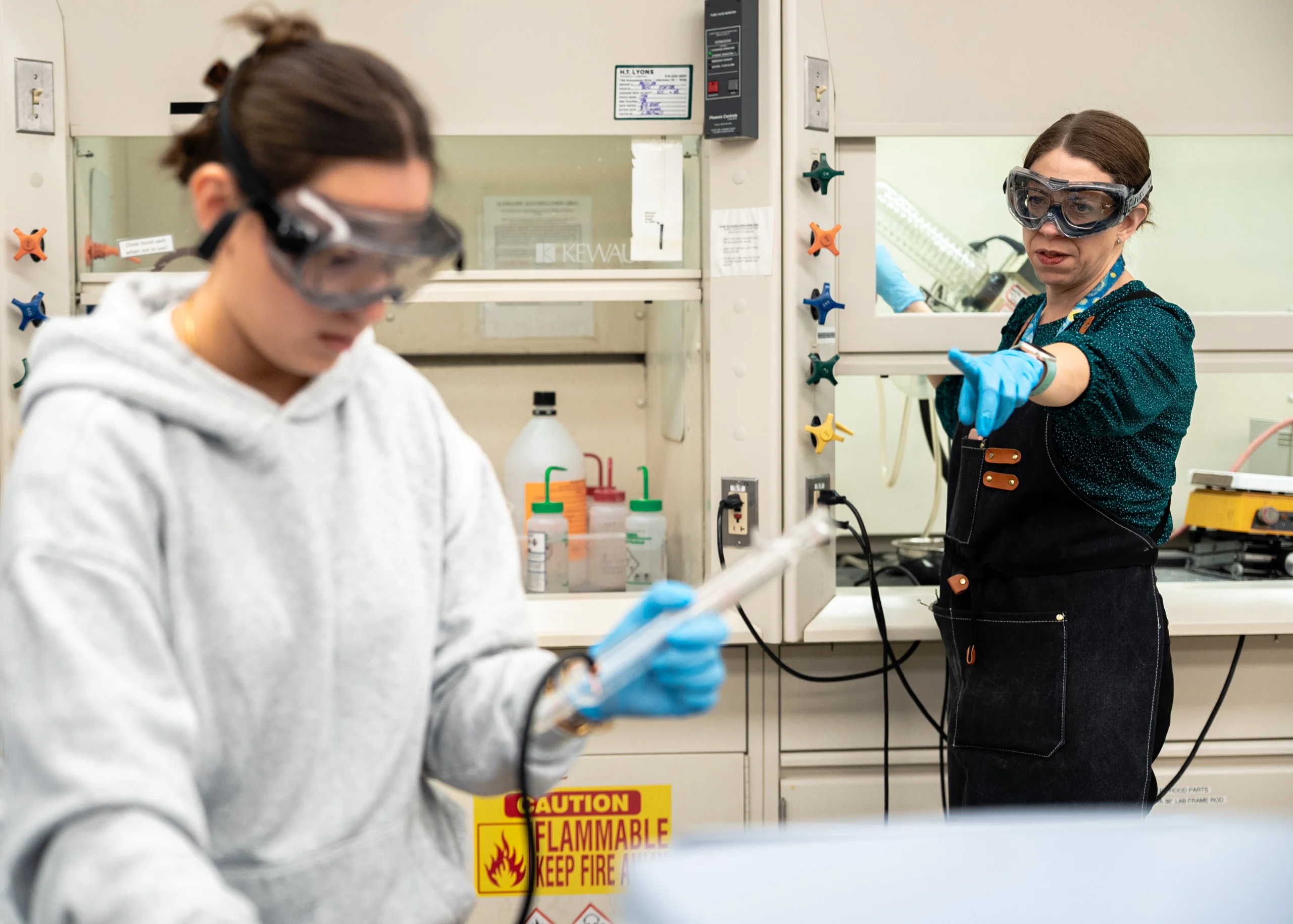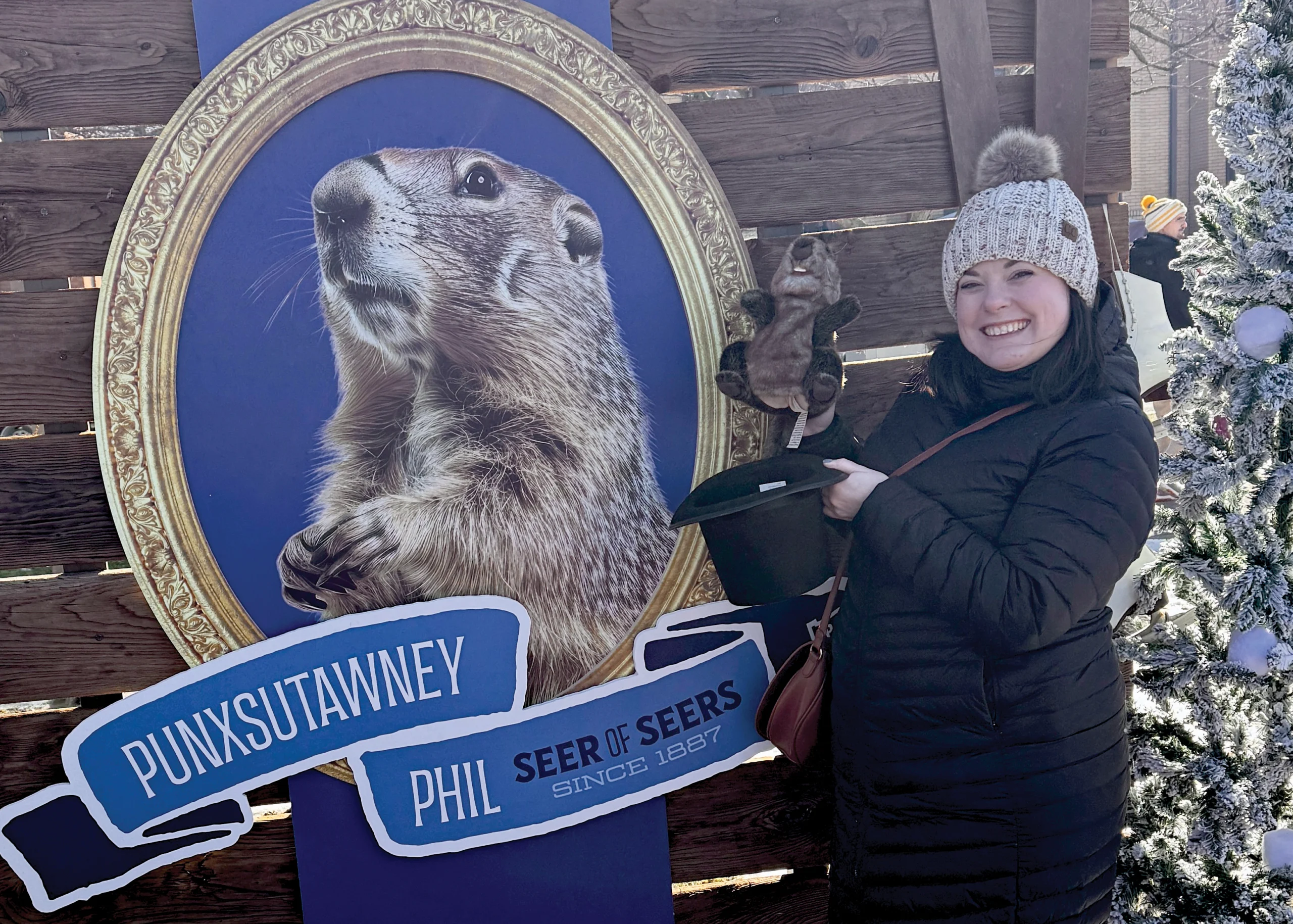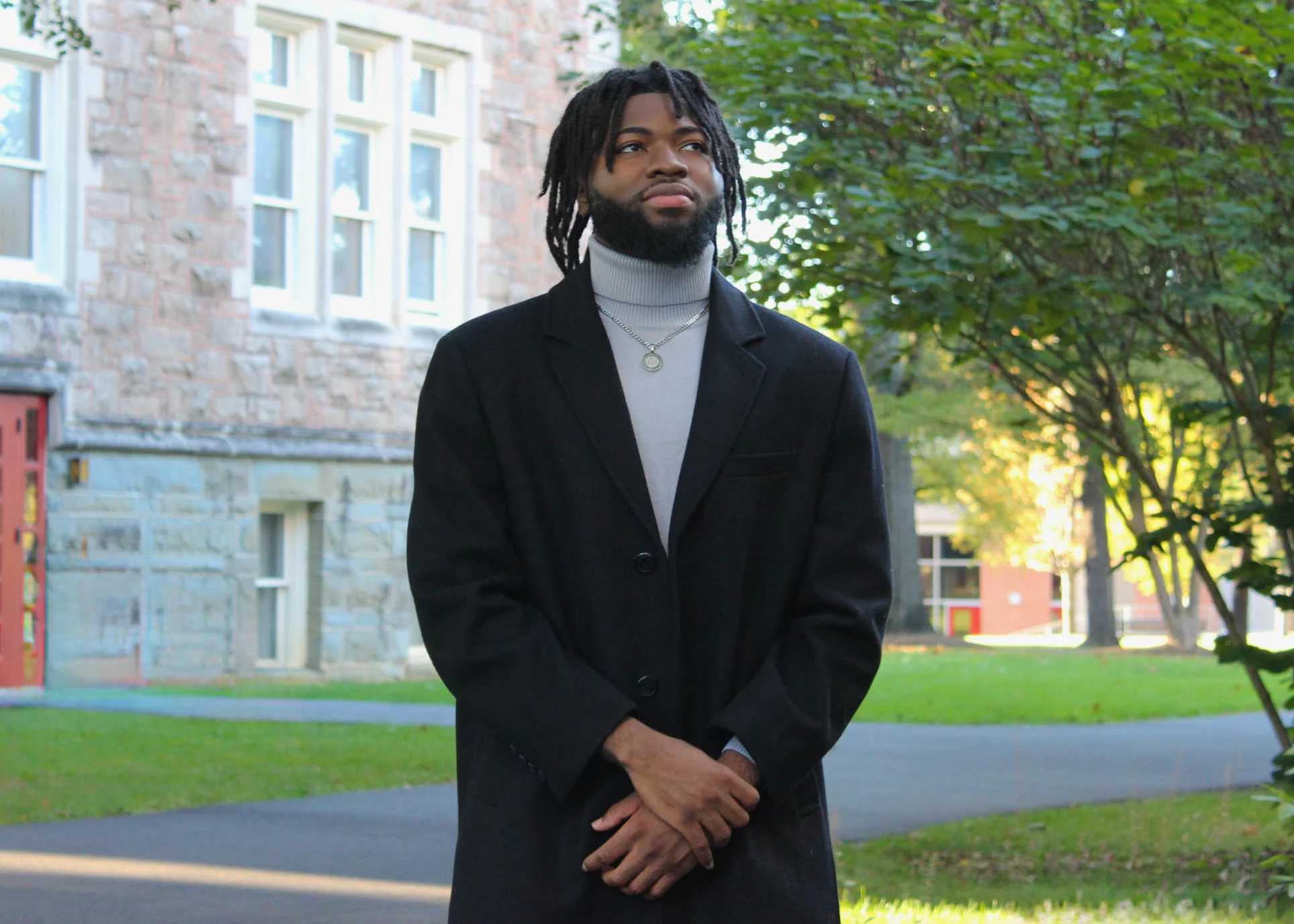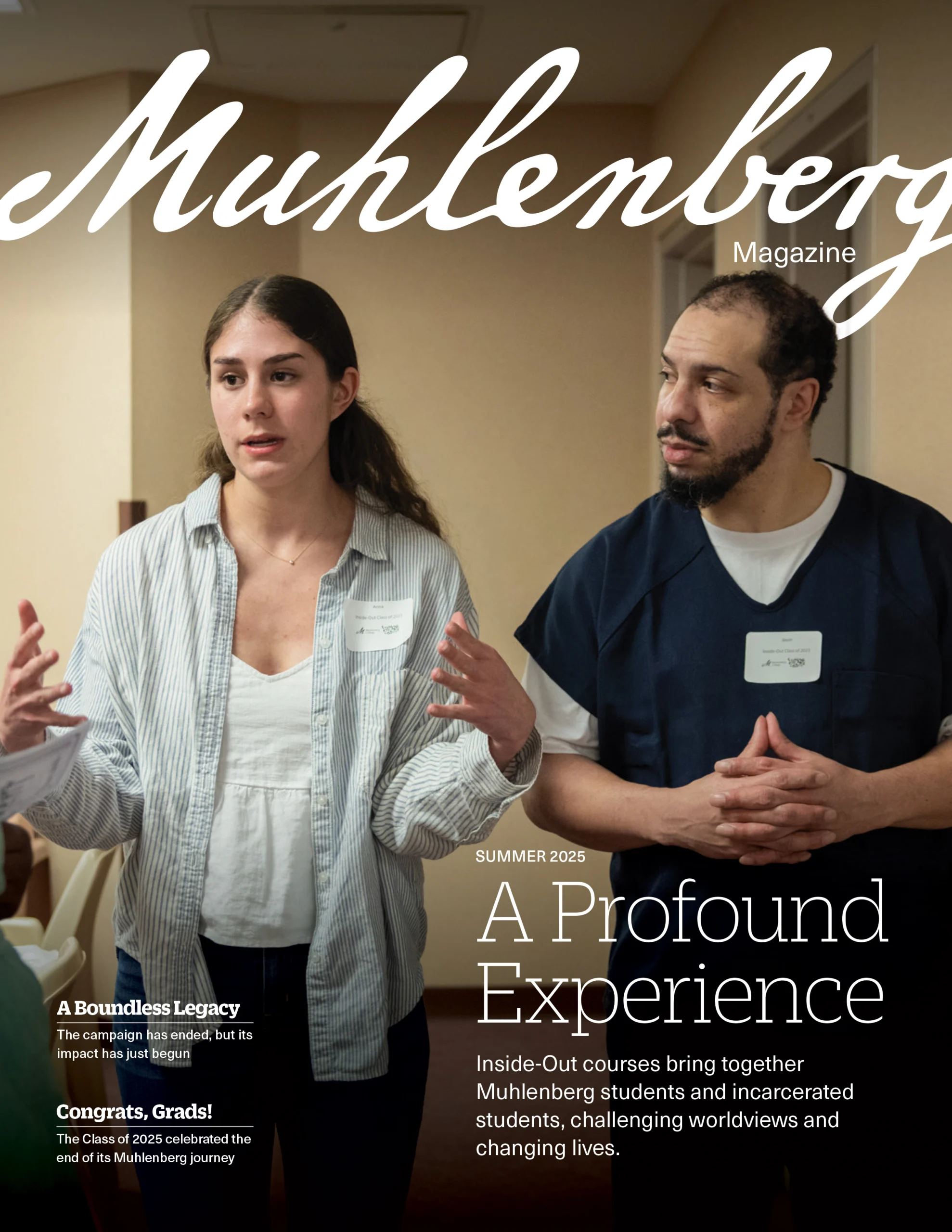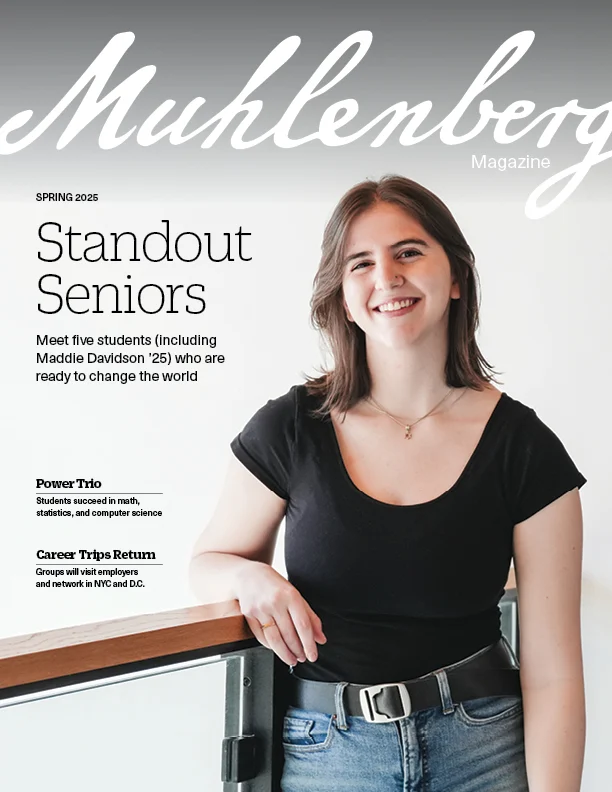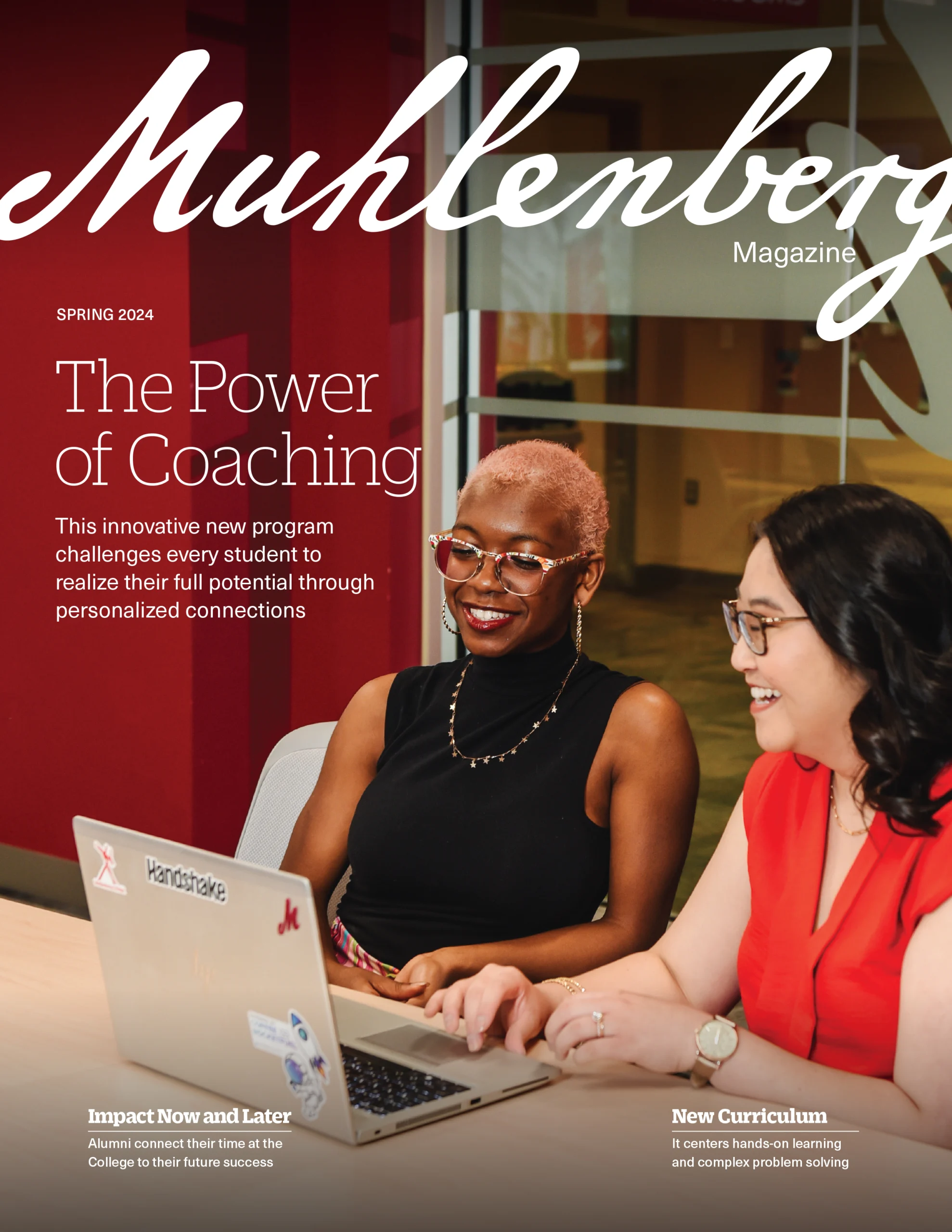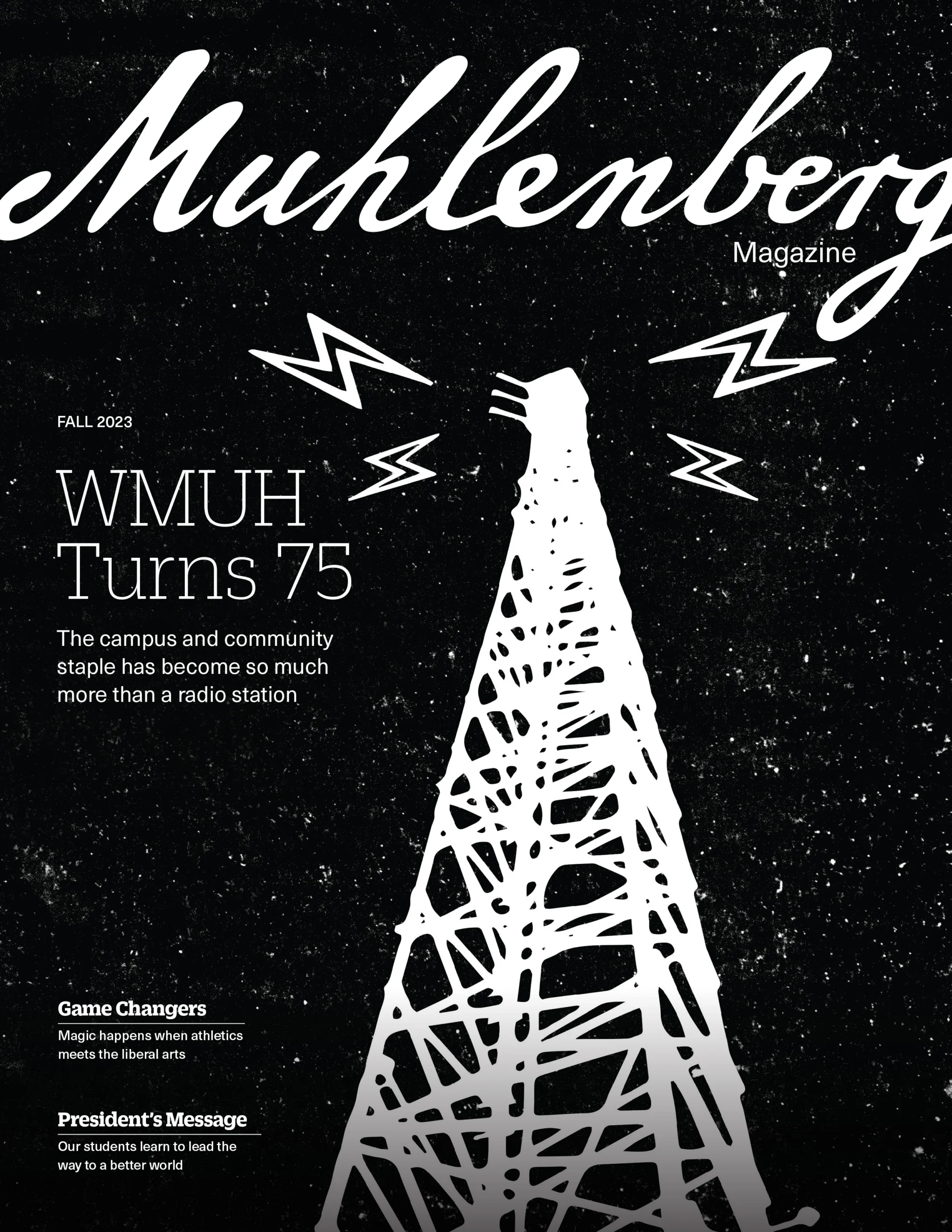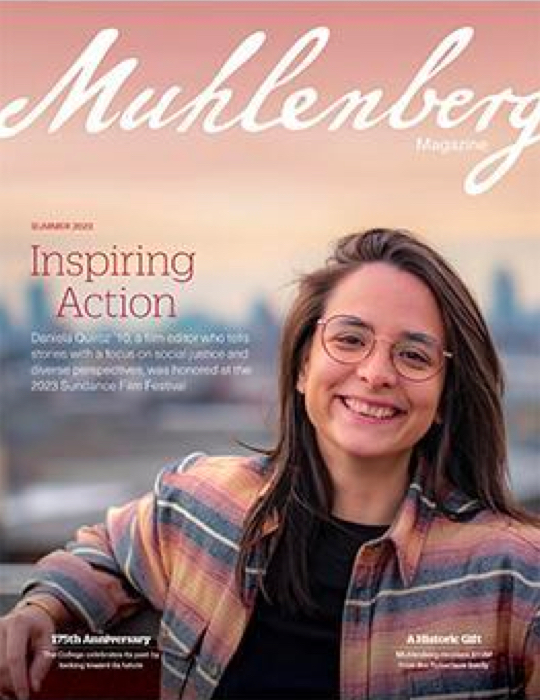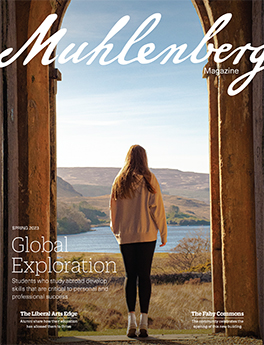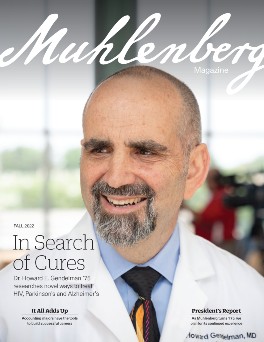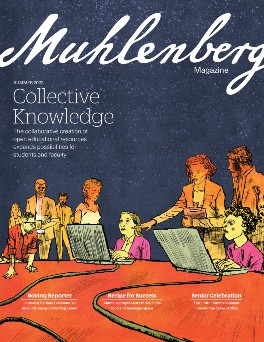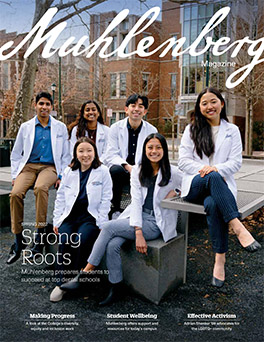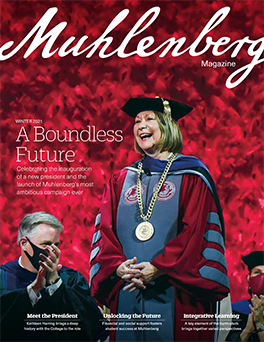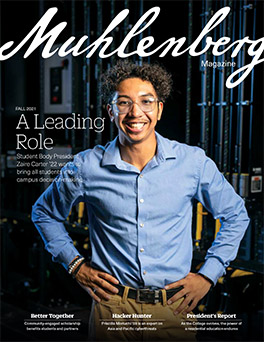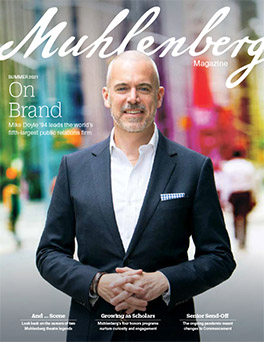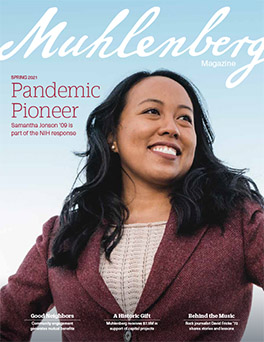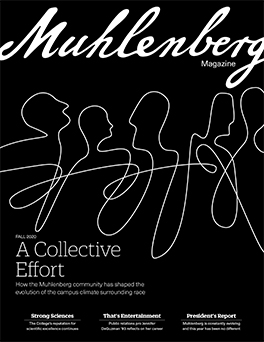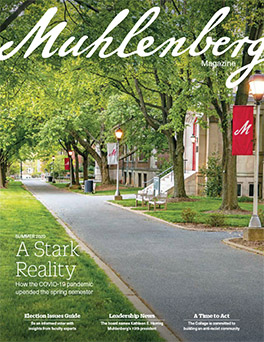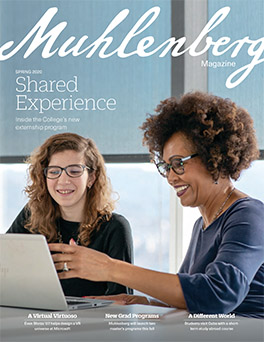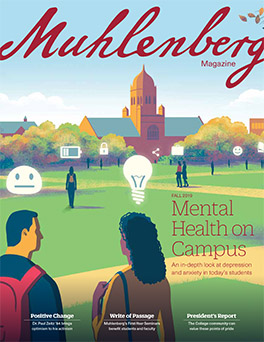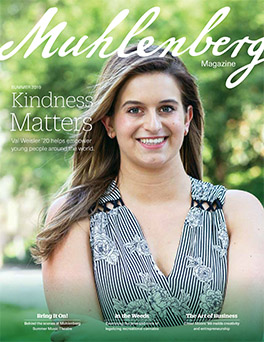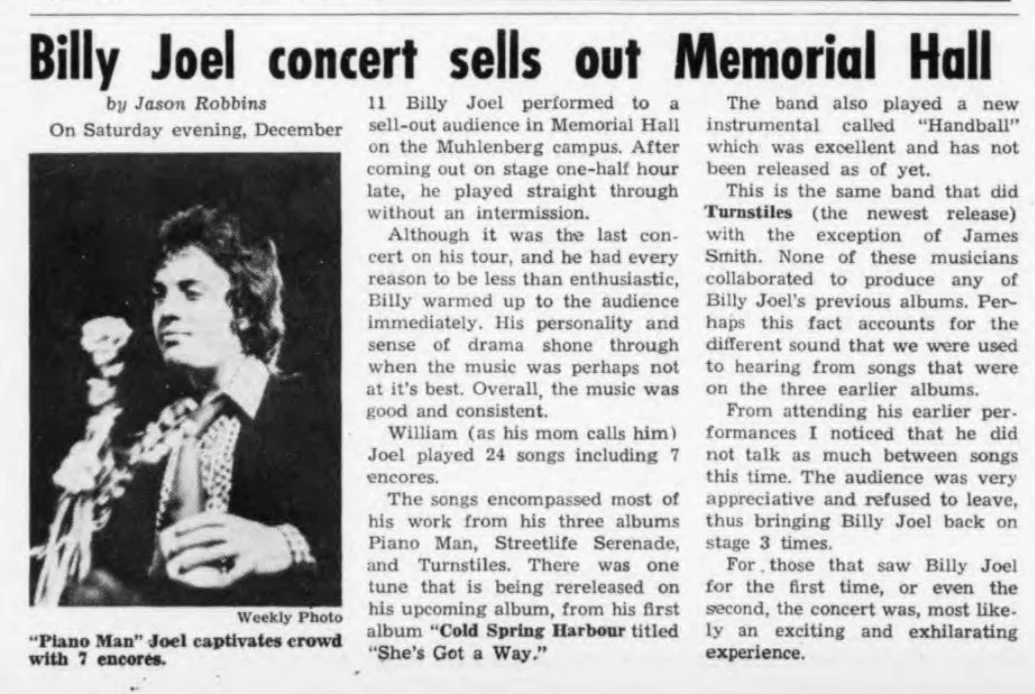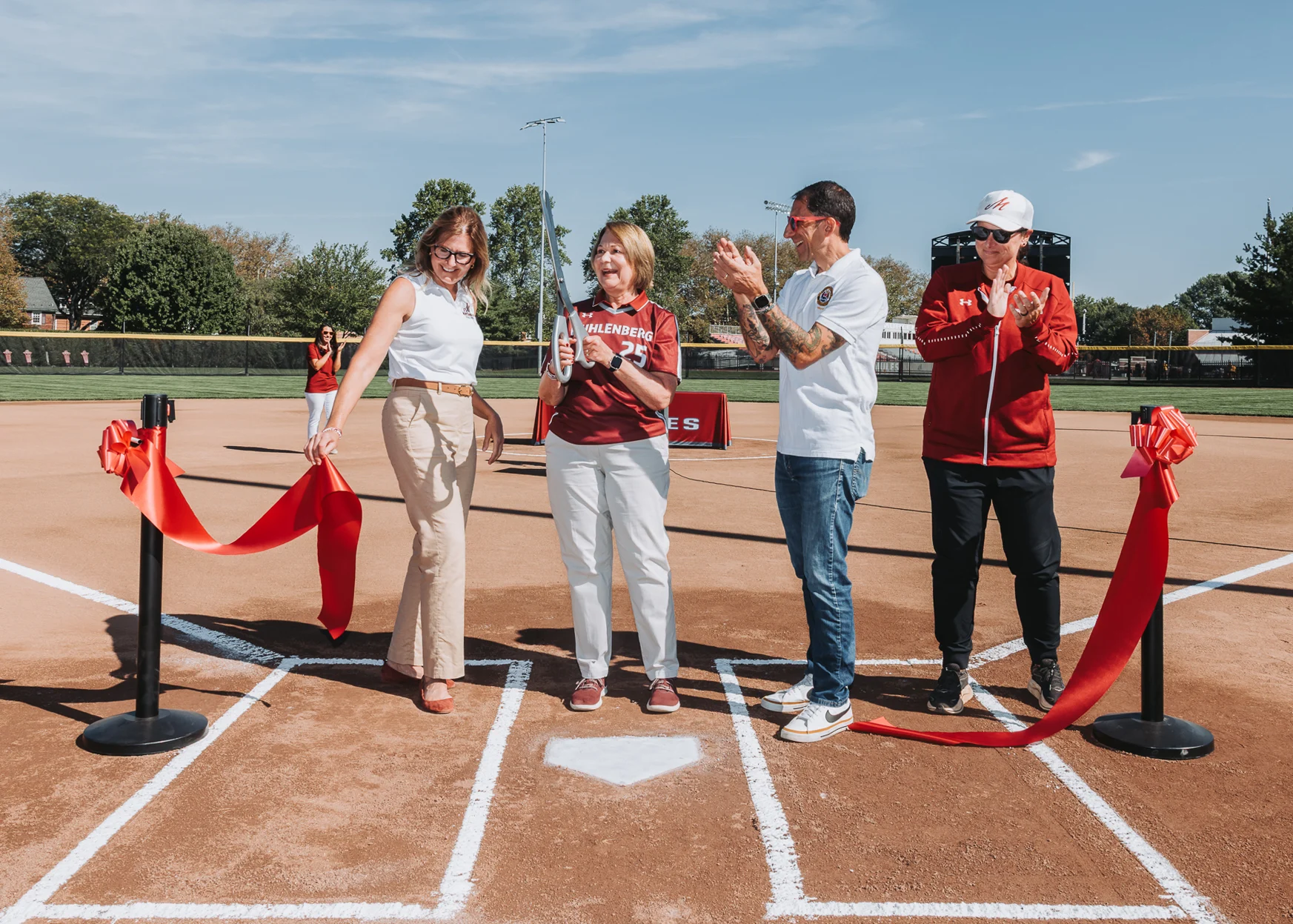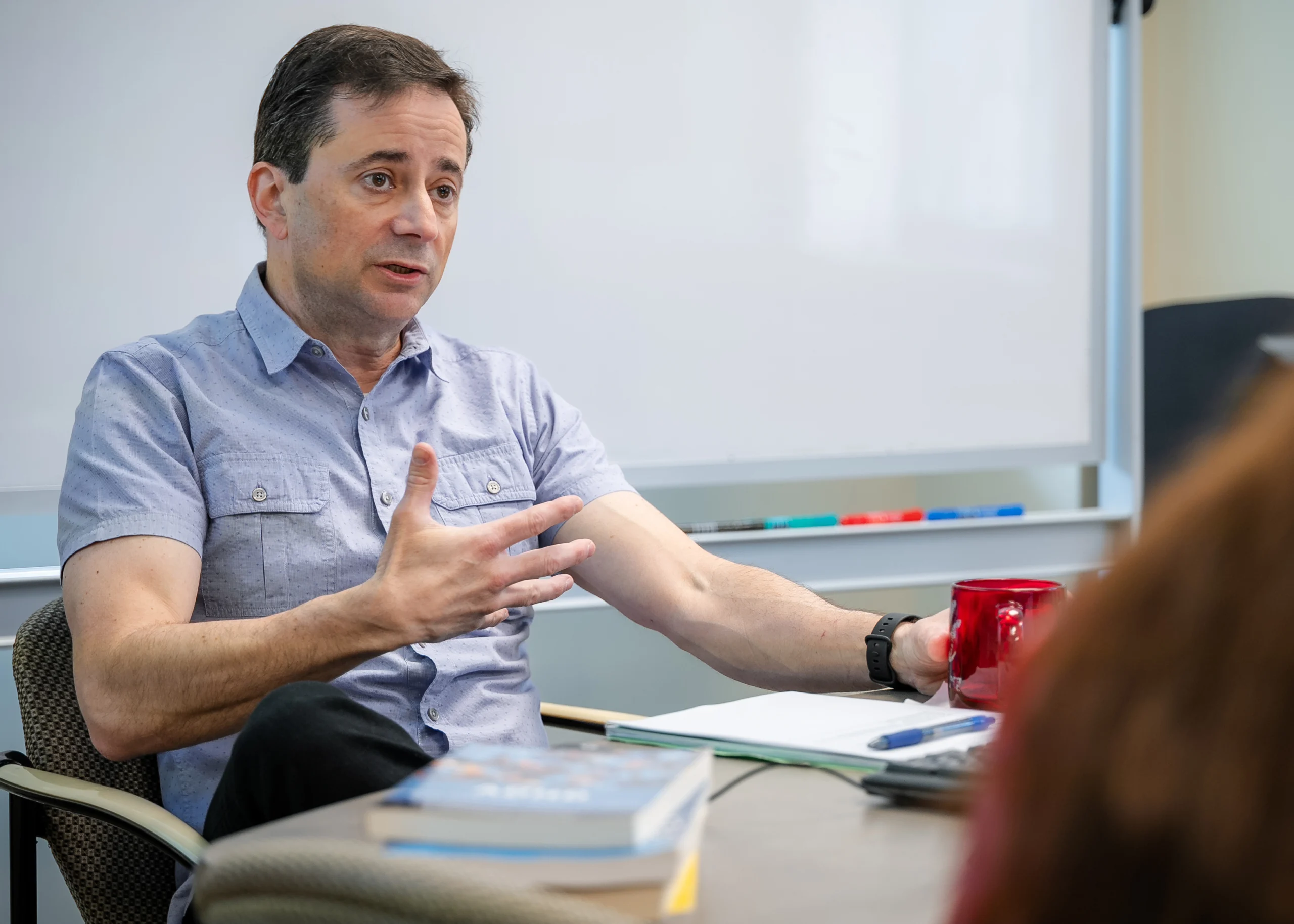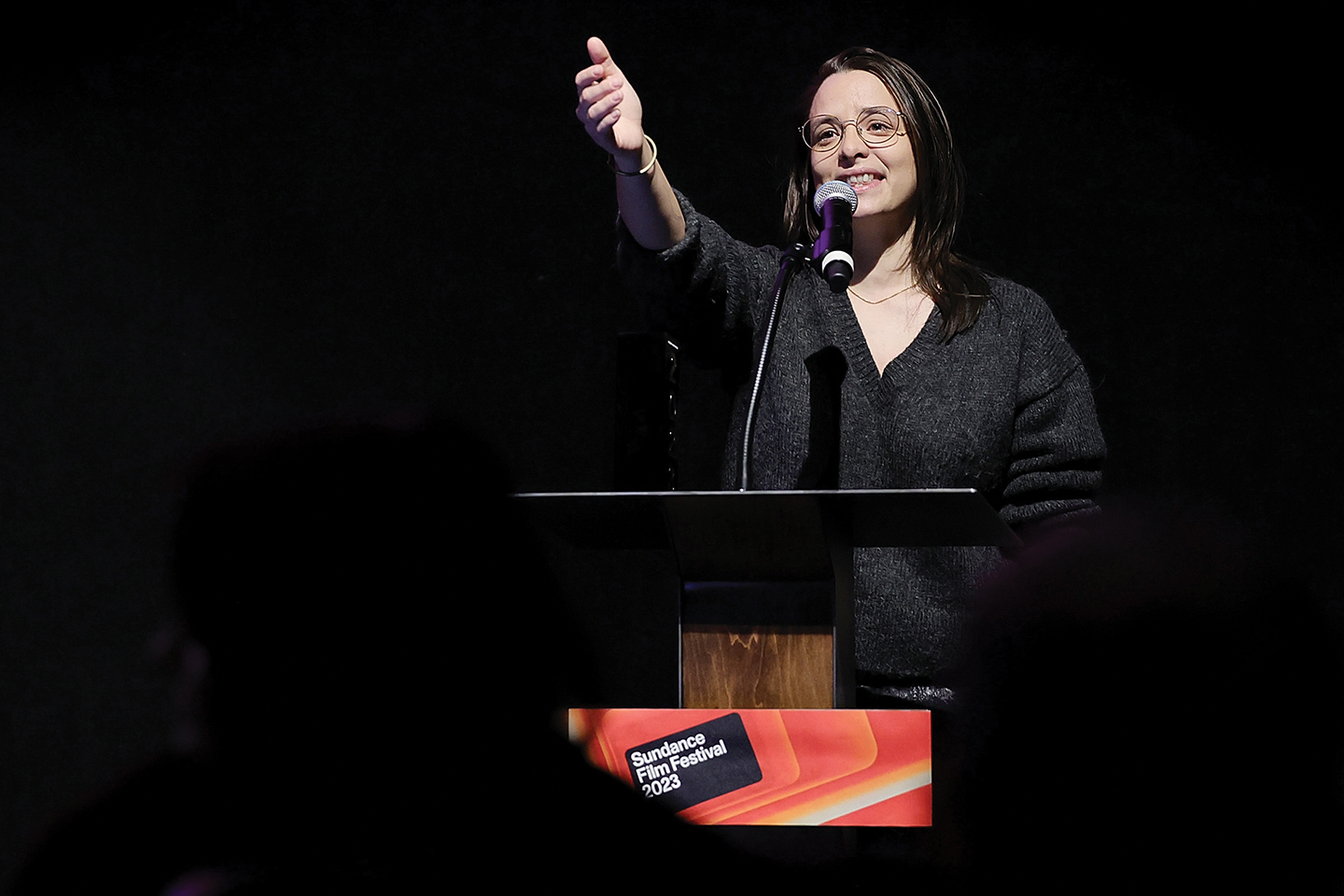
Daniela Quiroz ’10 Inspires Action
Quiroz is a film editor committed to telling stories that advance social justice and spotlight diverse experiences and perspectives, with a special passion for joyful stories about Latinx culture. Her work on one of those projects, a documentary about a competitive scholastic mariachi team from South Texas, earned her the Jonathan Oppenheim Editing Award at the 2023 Sundance Film Festival.
The 2023 Sundance Film Festival held its awards ceremony more than a week after the festival began, on January 27, inside the 500-seat Ray Theatre in Park City, Utah. By that time, most of the few dozen cast and crew who had come for the January 22 world premiere of the documentary they’d worked on, Going Varsity in Mariachi, had gone home. The group had worn matching blue and gold sequined varsity jackets on the red carpet. The name of the film, which tells the story of a competitive scholastic mariachi team from South Texas, was emblazoned on the back.
“We were pretty prominent in the streets of Park City,” says Daniela Quiroz ’10, who was Going Varsity’s editor. “It was so cold. The jackets were not warm enough. But it was an amazing experience.”
Quiroz stayed for the awards ceremony along with the film’s directors, Sam Osborn and Alejandra Vasquez, and producer Julia Pontecorvo. They sat near the back of the venue — its stadium seating meant everyone had a good view, and they weren’t counting on winning anything. It was an honor just to be selected for the festival, which receives thousands of submissions each year and chooses just 99 films to screen.
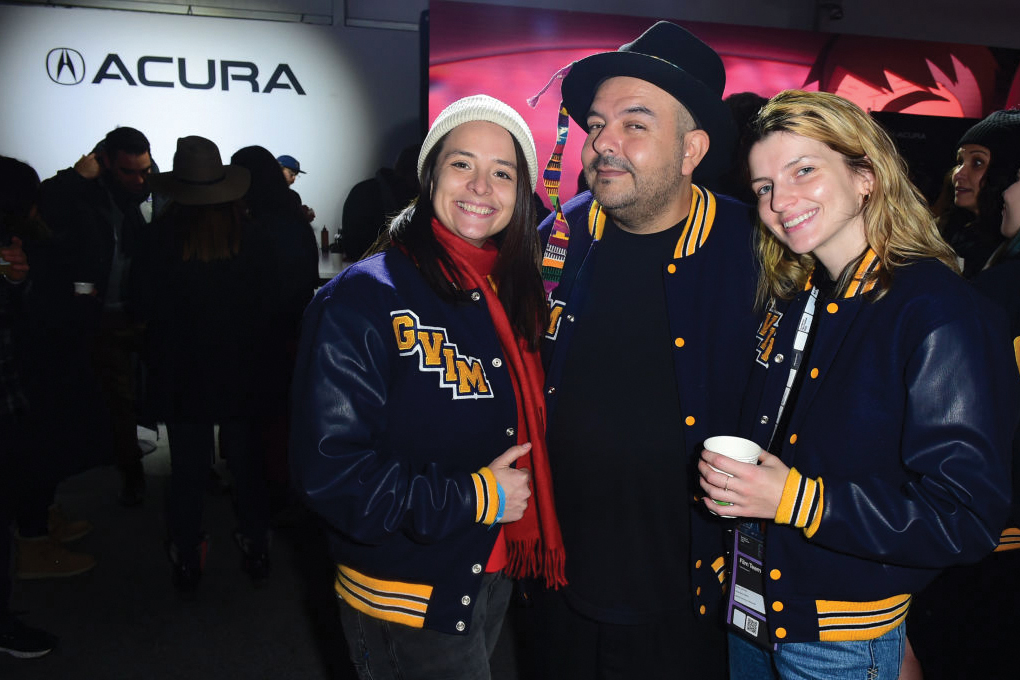
The juror who presented the Jonathan Oppenheim Editing Award, which is named after the late editor of the 1990 documentary Paris Is Burning, took the stage to introduce the winner, describing the winning film as “a joyful edit that carries the heart of the characters while still exploring difficult and sensitive issues in a delicate and beautiful way. We deeply care for our heroes and the spirit of life on the border.”
“The juror mentioned ‘life on the border,’ and that second, I felt Julia squeeze my hand, and we realized that this was our film, and we were being recognized specifically for editing,” Quiroz recalls. “Any chance I had of keeping composure was out the window. I immediately started crying.”
“I was like, ‘I can’t be up here in a room full of filmmakers and not tell them about the things that I care about.’ To have a mic in front of a group of influential people like that is very rare.”
—Daniela Quiroz ’10
Quiroz made her way down, down, down to the stage and arrived out of breath. She used her speech not only to thank her team but to advocate for her fellow editors and their profession. For example, the Going Varsity producers adhered to scheduling guidelines proposed by the Alliance of Documentary Editors to ensure ample time for post-production work to occur: “That’s one of the things I mentioned, that this is something that should be a trend moving forward for any documentary film, so that you don’t burn out your editors.” She also promoted the use of resources like BIPOCDocEditors.com that work to diversify the overwhelmingly white and male field of documentary editing.
“I was like, ‘I can’t be up here in a room full of filmmakers and not tell them about the things that I care about,’” Quiroz says. “To have a mic in front of a group of influential people like that is very rare.”
Finding Her Way to Film
Perhaps it is rare for Quiroz herself to have such a platform, but the focus of her career has been working on films that uplift the voices of advocates for social justice and individuals with diverse perspectives. Quiroz, who grew up in New York City, had an interest in social justice from a young age. One of the reasons she chose Muhlenberg was because she could tell during her visit that the College had a politically active student body. (“And, the food was good,” she adds.)
At Muhlenberg, she studied both media & communication and Spanish. Her family is from Peru, and Spanish was her first language. In college, she chose the Spanish major because she wanted to read the Spanish literature she would’ve read in high school if she’d grown up in a Spanish-speaking country. She also hoped to study abroad, and she did, during her junior year: “I went to Málaga and loved it and really had that immersive experience that was pivotal for reaching a new level of understanding of … I don’t want to say my heritage, because my family didn’t come from Spain, but to have the privilege to immerse myself in another culture has stuck with me to this day because of how unique an experience I was afforded.”
She chose media & communication because she wanted to do something creative, something that could make a difference in her community and in society, either journalism or photojournalism. She was not interested in pursuing film; several of her older cousins worked in the industry, and she wanted to do something different. But, when she was a senior, she took her first film production class with Professor of Media & Communication Paul McEwan. She was part of a group that wrote, directed, filmed and edited a short film.
“I fell in love with the process,” she says. “I loved every aspect of it, but I literally lost [track of] time in the editing.”
“[At Muhlenberg], I fell in love with the process [of filmmaking]. I loved every aspect of it, but I literally lost [track of] time in the editing.”
—Daniela Quiroz ’10
When she graduated, she knew she wanted to continue editing, but she needed to amass experience: “It’s a high risk to hire a first-time editor,” she says. “I kind of just went and put in my time.”
She worked as a personal assistant at the documentary production house Gabriel Films and was able to shadow the editor working there. Eventually, she was able to try her hand at cutting some scenes. After her time there, she assisted a few editors on projects they were working on and cut films made by New York City-based college students on a freelance basis.
“That’s how I got the majority of my experience — taking a lot of short-term projects,” she says. “Now, I edit very long-form pieces, but if you do shorter things, then every time you start a new project, you’re building off of what you learned in the previous project. I took on as many projects as possible so I could keep building that base.”
Employed as an Editor
Quiroz’s first full-time editing job was with Skylight, which focuses on human rights documentaries. It was a relief to have a steady paycheck after a couple years of freelancing, and she was able to learn the specific style and point of view the nonprofit organization brought to its films. At Skylight, she served as a co-editor on Rebel Citizen, a film about the political documentaries by Academy Award-winning cinematographer Haskell Wexler. It was her first feature-length editor credit.
In September 2015, Quiroz left Skylight for Vice Media Group. She was interested in learning more about editing for television, and learn she did: “I was thrown in at the deep end,” she says. “It was so fast-paced compared to what it was like at Skylight. I went from a crew of six people to, I think … 100 people [in production and post-production] in the basement of the Vice building in Williamsburg, [Brooklyn]. It was a lot for me to wrap my head around, but I learned so much.”
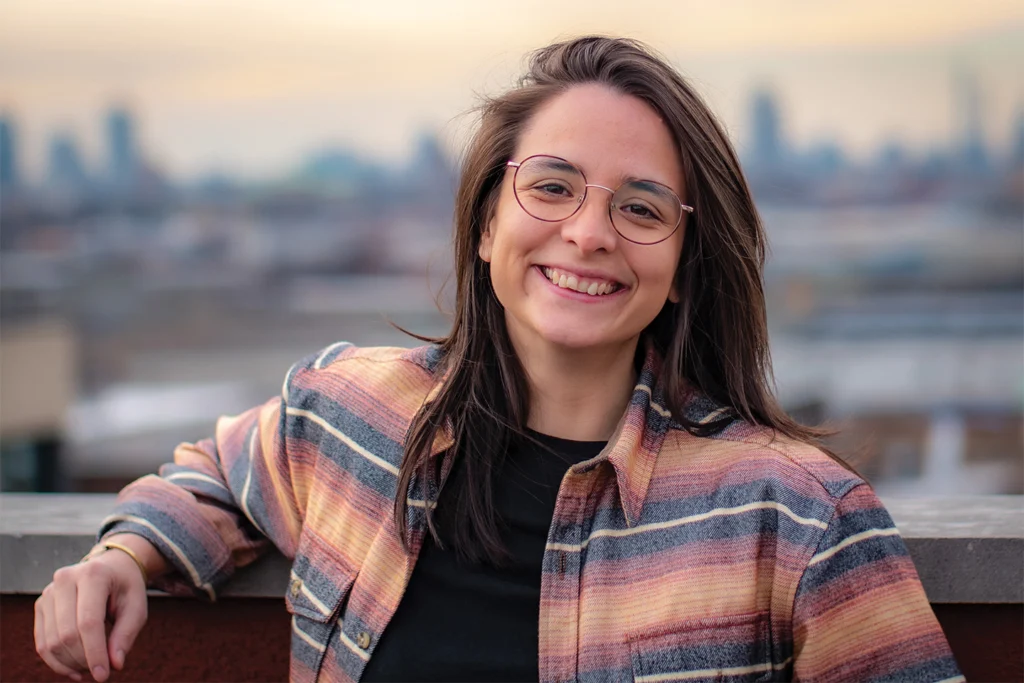
At Vice, she learned how to stay organized as she worked on multiple projects at once. When she started, she was primarily cutting promos that would run online ahead of new episodes of VICE on HBO. After a couple years, she started cutting longer-form pieces, including 30-minute episodes of the show (most were broken into two 15-minute segments). She’d work on each project for about two months. The one she remembers most fondly was called “Trans in Texas.” It expanded on a story from a previous season about a trans girl fighting for the right to use the bathroom of her choosing in Texas.
“The next year, the producers followed up with her and took it to a broader level: What is happening around Texas for other trans folks? What is the battle for folks in that state specifically? I worked on that follow-up piece and I was super proud of that,” she says. “It was with an associate producer who started around the same time I did. We had grown in the company together and this was both of our first opportunities to take on a solo project the company was trusting us with. It was a great bonding experience for us, but also, the story was just really close to my heart.”
Freelance Freedom
In early 2019, Vice laid off 10 percent of its staff, and Quiroz was among those affected. At the time, she was upset — she liked the people she worked with and had learned a lot at the company — but in retrospect, she says, it was a positive thing. She’d built a huge network at Vice, and her colleagues helped get her name and resume in front of their networks. She was able to resume freelancing but in a way that felt more secure and less feast-or-famine than it had when she was less experienced.
“The more people you work with, the more yeses you get. It grows exponentially as long as people enjoy working with you and you do good work,” she says. “When I was 21, I would just say yes to everything. I would spend weeks working on multiple projects, burning myself out, and then I would spend weeks having nothing to do. Now, I can pick and choose projects a little bit more.”
Quiroz worked on two episodes of a PBS series before she connected with the production team of The Last Out, a feature-length documentary about three young Cuban baseball players training for Major League Baseball. In late 2019 and early 2020, she and another editor worked to take the film’s rough cut and turn it into a polished product that would be selected to premiere at the 2020 Tribeca Film Festival. The pandemic canceled the festival, but the film’s selection alone gave Quiroz confidence that she was on the right path.

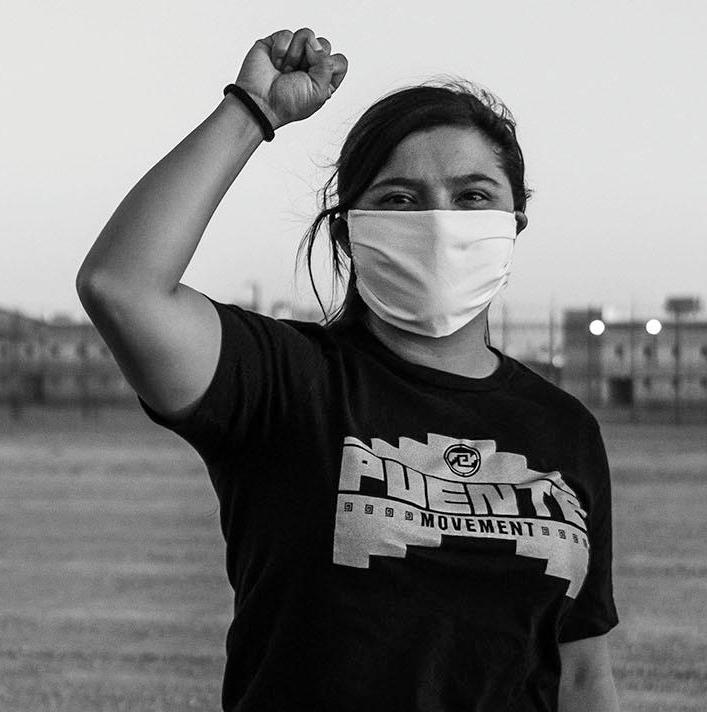
In 2020, Quiroz worked on an hour-long project for PBS called Latino Vote: Dispatches from the Battleground. She and the director, Bernardo Ruiz, had to rethink its formatting — the idea had been to capture grassroots organizing during the 2020 election, but pandemic restrictions on travel forced them to get creative. Ruiz hired local videographers to film interviews that he conducted via Zoom. It would be Quiroz’s first solo editing credit.
“We had nine months to get the film going and broadcast ahead of the election. That project meant a lot to me in terms of finding creative solutions and having my first solo credit, but also because it was a story about my culture and my community,” she says. “The message ultimately was that the Latinx community isn’t a monolith and that no political figure should take our vote for granted. Just because we’re all part of the same community does not mean we’ll all vote the same way.”
To Sundance and Beyond
Quiroz got connected with the Going Varsity team through one of the directors of The Last Out. She remembers her interview with the Going Varsity directors well: “I had no idea whether or not they liked me, but I really loved the story. I really wanted to be a part of it,” she recalls. “They were so composed — who knows, maybe they had a long shoot day — but normally, I’m the person who’s a little bit more cool and level-headed. I was like, ‘Oh my God, am I just too thirsty right now?’ Later on, I found out I was their top choice. They really wanted to work with me as well, because of my passion.”
The directors were wrapping up filming in Texas for the first few months Quiroz was on the project, in early 2022. She met with the rest of the group, first virtually and then in person, a couple times a week. Together, they determined what the story could be, what scenes might be missing and whether they needed additional footage of a specific character or a specific setting. She deeply enjoyed the collaborative process and having a large
role in the film’s creative development.
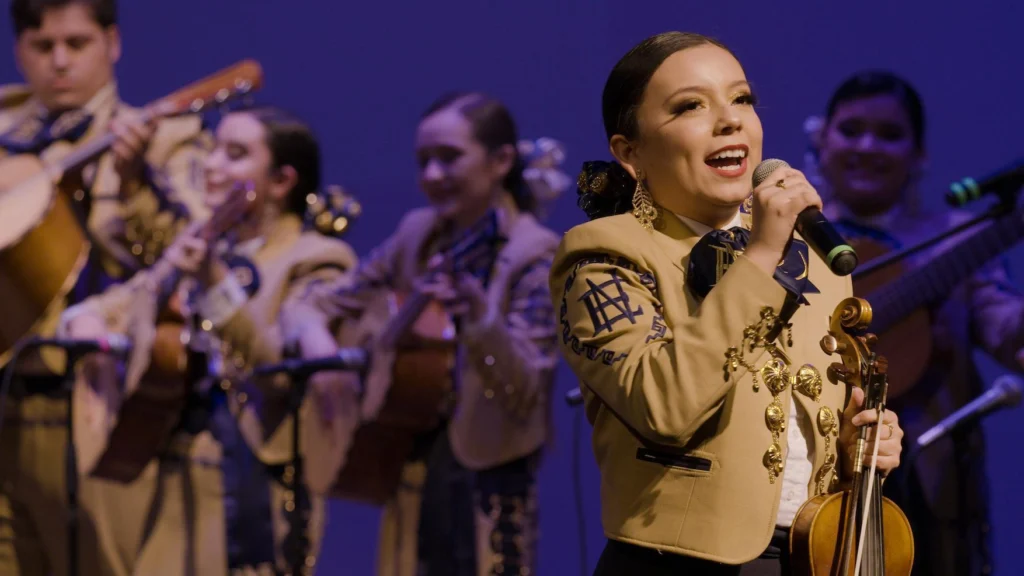
In October 2022, the group submitted a rough cut of the film for consideration in a variety of festivals, including Sundance. Within another month or two, Quiroz completed her cut and the team began working on things like color correction and audio mixing — the finishing touches. One day during that period, while the team was together and working through a tough problem, Vasquez, one of the directors, missed a call. She told the group to take a five-minute break and called the number back. When she returned, she announced that the call she had missed was from Sundance — they’d gotten in.
“Immediately we were elated,” Quiroz says. “We never thought it was going to be possible … We were jumping up and down for joy, freaking out. We called the executive producer. And then there was a moment of quiet, and we were like, ‘We still need to finish the film … People are actually going to see this.’”
“The aim is to inspire folks to take action and either educate them on something they’ve never heard about before or ignite a passion inside them so that they put pressure on their political officials to actually enact change.”
—Daniela Quiroz ’10
At Sundance, Going Varsity received a glowing reception from audiences and jurors alike. The experience provided validation that there’s an appetite and a market for exactly the kinds of joyful stories about Latinx culture that Quiroz has a passion for telling. She’s since begun work on a very different project that aligns with her interest in the intersection of storytelling and social justice: a documentary that deals with solitary confinement in California, focusing on a few formerly incarcerated people who staged a hunger strike in prison to protest the state’s practices.
With projects like this one, “the aim is to inspire folks to take action and either educate them on something they’ve never heard about before or ignite a passion inside them so that they put pressure on their political officials to actually enact change,” Quiroz says. “A lot of documentaries take a deep dive into social issues that are hopefully interesting to folks and will inspire them to leave the theater with a sense of purpose.”

